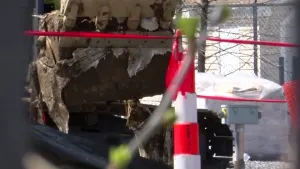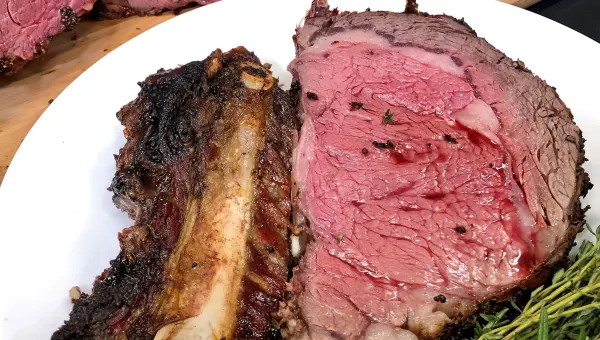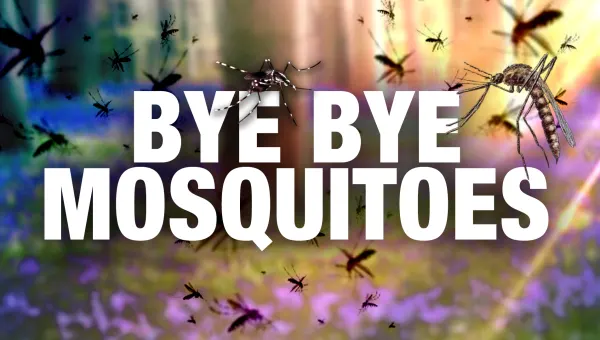Bear encounters are up across New Jersey, DEP says. But some say a bear hunt is not the solution
Some New Jersey residents say they are fearful for their outdoor pets as the number of bears and sightings and other wildlife encounters rise.
News 12 Staff
•
Sep 16, 2022, 2:24 AM
•
Updated 588 days ago
Share:
More Stories
1:56

Officials: Blue soil spotted near where buried drums were found at Bethpage park
23h ago1:02

Composting can save money, help gardens and save the planet. Here are 10 tips to get you started
2ds ago1:22

DEC expected to soon release what toxic chemicals were buried beneath chemical drums at Bethpage Community Park
2ds ago1:55

Long Islanders taught about dangers of toxic pollutants in drinking water
3ds ago2:16

It’s Earth Day! Find out how United Way is celebrating.
3ds ago0:48

Nonprofit environmental group hosts discussion on climate change at Jones Beach event
4ds ago1:56

Officials: Blue soil spotted near where buried drums were found at Bethpage park
23h ago1:02

Composting can save money, help gardens and save the planet. Here are 10 tips to get you started
2ds ago1:22

DEC expected to soon release what toxic chemicals were buried beneath chemical drums at Bethpage Community Park
2ds ago1:55

Long Islanders taught about dangers of toxic pollutants in drinking water
3ds ago2:16

It’s Earth Day! Find out how United Way is celebrating.
3ds ago0:48

Nonprofit environmental group hosts discussion on climate change at Jones Beach event
4ds agoSome New Jersey residents say they are fearful for their outdoor pets as the number of bears and sightings and other wildlife encounters rise.
The state Department of Environmental Protection says the number of reported bear encounters has nearly doubled since last year. An encounter has left a Warren County man looking for ways to safeguard his animals.
“We looked out here and we saw the damage by the bear that came over the fence to get the ducks,” says Joe Fennelly.
Fennelly and his wife have lived in the Columbia section of Knowlton Township for five years. They say that when they moved there, they knew it was in bear country. But they say that in the last few years, the number of bears has gone up – and they are coming closer to their home.
Fennelly says that on Wednesday night, a bear jumped over his fence and destroyed his duck coop. He says the bear was likely trying to get to the birds or their food.
“We have had one bear in the property, but nothing like this – nothing like this at all,” Fennelly says. “We see them in front, but nothing ever coming over the fence.”
The DEP says bear sightings are up from 175 from January to August of last year to 347. Bears causing damage increased 175% this year compared to 2021.
Gov. Phil Murphy canceled the black bear hunt entirely last year. And while some say bear hunting reduces the population, others say there are more humane ways to cull the population by slowing down when bears start having cubs.
“The hunt does not reduce the black bear's fertility rate, nor does it prevent incidents with bears,” says bear advocate Angi Metler. “When bears don't have access to unnatural food sources they can actually start reproducing and having cubs up to the age of 11. In New Jersey, they start having cubs at age 2 ½”
Metler says that being bear-smart is a way to keep the population down. She says residents can start by removing attractants from around their homes and getting bear-resistant garbage cans.
In cases like Fennelly, where there are outdoor animals, homeowners can opt for an electric fence or just be careful of food placement.
“There’s fencing, there’s electric fencing, there’s food and just keeping the coops early secure,” Metler says.
Fennelly says that he is concerned that the bears will try even harder to get into his duck coop.
“Whatever bear was there, he knows they’re here now and he’s gonna come back,” Fennelly says.
The DEP says that there are some ways for people to stay safe during a bear encounter. The department says that black bears by nature tend to be wary of people. If anyone runs into a black bear, they should be sure not to feed them. Do not approach or make eye contact. People should stay calm and make their presence known with loud noises. People are also encouraged to have a bear plan that includes whistles or horns.





